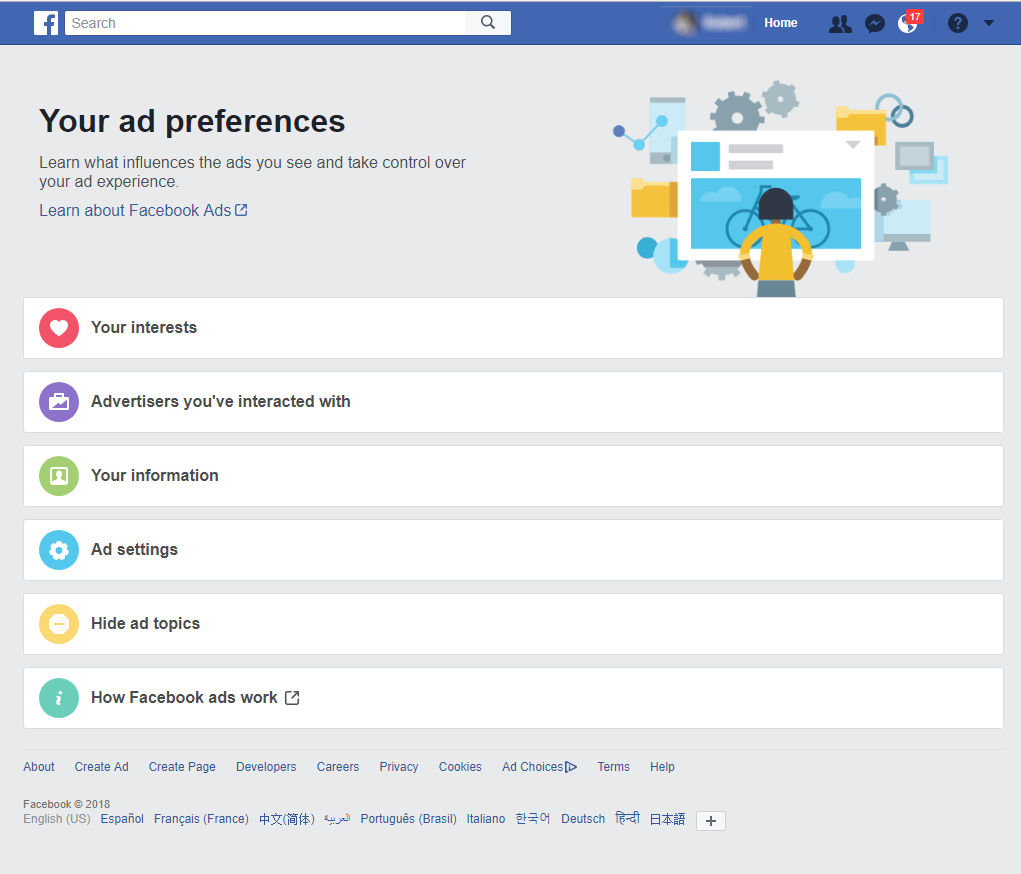He also was able to gather profile information of an additional 49 million users because Facebook had a setting to pull friends’ information, too. This has created much discussion about how much data is being collected by websites and online services and how marketers use that data. How pervasive is third-party data for Facebook targeting? Ginny Marvin of MarketingLand reports that “Just about half of Facebook’s 1,200 targeting criteria come from third-party data sources.” Data and Privacy Facebook is moving quickly to simplify privacy settings and data collection. What most affects advertisers is the area Facebook has named “Your ad preferences.” Any Facebook user can go to this page while logged in and identify what influences the ads she sees. From “Advertisers you’ve interacted with,” users can see which companies have their contact info, which advertiser websites or apps the users have visited, and which ads they’ve clicked. This will allow targeted consumers to opt out of ads, even if they were included in a custom audience list. From “Ad settings,” users can turn off ads based on whether they have visited a website or app, even from companies that didn’t directly advertise on Facebook (likely the Facebook Audience Network). Google, Too Facebook isn’t the only company that is addressing privacy concerns. Collect names, email addresses, and phone numbers from users that respond to your ads.
Facebook is facing a public relations nightmare surrounding its collecting and sharing of user data.
Here is the short version. A Cambridge professor used a Facebook survey app to obtain profile information from the 300,000 people who participated. He also was able to gather profile information of an additional 49 million users because Facebook had a setting to pull friends’ information, too. That got into the hands of a marketing company called Cambridge Analytica, which famously helped Donald Trump with online advertising during the presidential campaign.
This has created much discussion about how much data is being collected by websites and online services and how marketers use that data. It’s also causing many internet users to consider the cost of “free” services, such as Facebook.
But how is this affecting advertising for ecommerce companies? That’s what I’ll address in this post.
Third-party Integrations
The biggest impact so far is the announcement from Facebook that it will shut down “Partner Categories,” which enabled third-party data providers to offer targeting directly on Facebook. The announcement is quite broad. Since 2012, Facebook, to improve its targeting, has been integrating data from major information providers.
Companies such as Acxiom, Epsilon, Experian, Datalogix, and Quantium may not be household names. But they pull information from seemingly everywhere — from shopping loyalty programs to credit card transactions.
Which targeting criteria will Facebook eliminate?
- In-market audiences, such as someone looking to buy a new car.
- Automobile ownership.
- Credit card holders.
- Likely investors.
- Buyers of certain brands.
- Buyers of certain product categories, such as hair car or cleaning supplies.
- Household income.
How pervasive is third-party data for Facebook targeting? Ginny Marvin of MarketingLand reports that “Just about half of Facebook’s 1,200 targeting criteria come from third-party data sources.”
Data and Privacy
Facebook is moving quickly to simplify privacy settings and data collection. What most affects advertisers is the area Facebook has named “Your ad preferences.” Any Facebook user can go to this page while logged in and identify what influences the ads she sees.

Each of…

COMMENTS